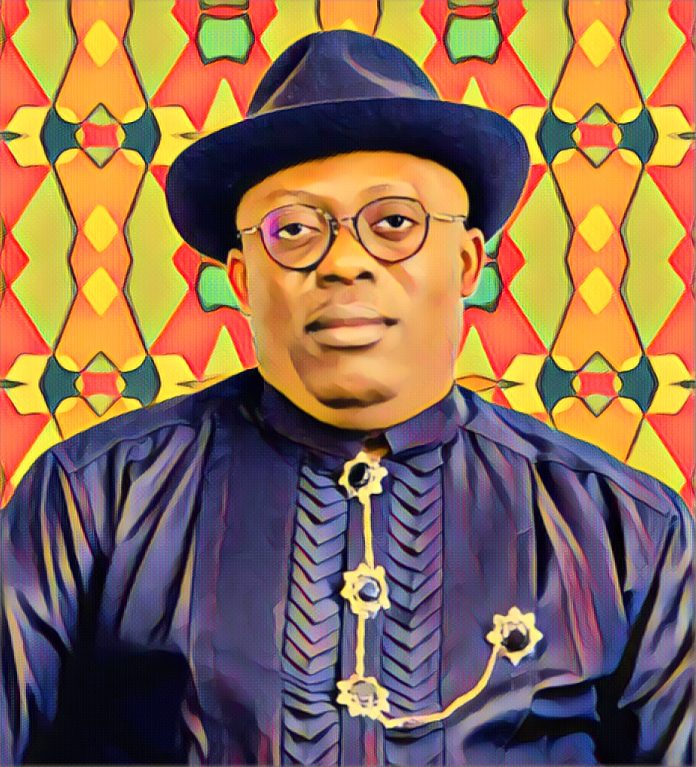During a courtesy visit by a delegation from Bayelsa State, led by former Governor Senator Henry Seriake Dickson, Governor Siminalayi Fubara made a bold statement regarding the state House of Assembly. He declared that the 27 members of the legislative body, led by Hon. Martin Amaewhule, “no longer exist as legislators in the eyes of the law.” This statement highlights the ongoing political tensions between the governor and the state’s legislative assembly.
The governor used the meeting as an opportunity to express his frustrations and outline his stance regarding the state’s legislative assembly. The controversy between Governor Fubara and the legislative body is due to a long-standing political crisis that began last year as a result of disagreements with his former mentor, Nyesom Wike. Despite attempts at reconciliation and a peace pact mediated by the presidency, the governor remains dissatisfied with the ongoing disruptions that he believes are orchestrated by his adversaries within the assembly.
Fubara detailed his efforts to maintain peace and political stability, emphasizing that his acceptance of the peace accord was intended to provide a “soft landing” for the legislators involved. He clarified that the accord was a political solution, not a constitutional remedy, aimed at addressing personal and political disagreements that have spilled into public view.
“These are people that I have helped in many ways when I wasn’t even a governor. Yes, we might have our disagreements, but I believe that one day, we could also come together. That was the reason I did it,” Fubara explained. However, he firmly stated, “But I think it has gotten to a time when I need to make a statement on this thing, so that they understand that they are not existing. Their existence and whatever they have been doing is because I allowed them to do so. If I don’t recognize them, they are nowhere, that is the truth.”
Governor Fubara portrayed himself as a conciliatory figure who has repeatedly chosen the path of peace and restraint despite possessing “all the instruments of state power.” His narrative is one of a leader striving to rise above political strife to focus on the development and welfare of Rivers State.
Reflecting on his tenure and the legacy of his predecessors, Fubara emphasized his commitment to continuing the development projects initiated by former leaders, including the immediate past governor. He lamented that the political conflicts, which he views as minor, have unfortunately escalated to dominate the state’s discourse, overshadowing developmental efforts.
“But it is a bad thing when the problem that ought not to be anything becomes something, and in fact, gets out of the bedroom to the sitting room and to the compound. That is the case of Rivers State today,” he remarked.
The governor’s comments highlight a critical juncture in Rivers State’s governance, where political infighting threatens to impede the state’s progress. Despite these challenges, Fubara remains focused on his administration’s development agenda, asserting that ongoing projects and improvements are testimonies to his administration’s effectiveness.
Senator Dickson, during his remarks, commended Governor Fubara for his maturity and the resilience shown by the people of Rivers State amidst the political turmoil. He expressed solidarity with Fubara’s administration, emphasizing the importance of stability and unity for the state’s continued development.
As Rivers State navigates these turbulent political waters, the actions and decisions of its leaders will be crucial in shaping its future. The governor’s stern declaration regarding the assembly members marks a significant moment that could redefine the political landscape of the state, calling into question the balance of power, the role of reconciliation in governance, and the path forward for this key Nigerian state.



